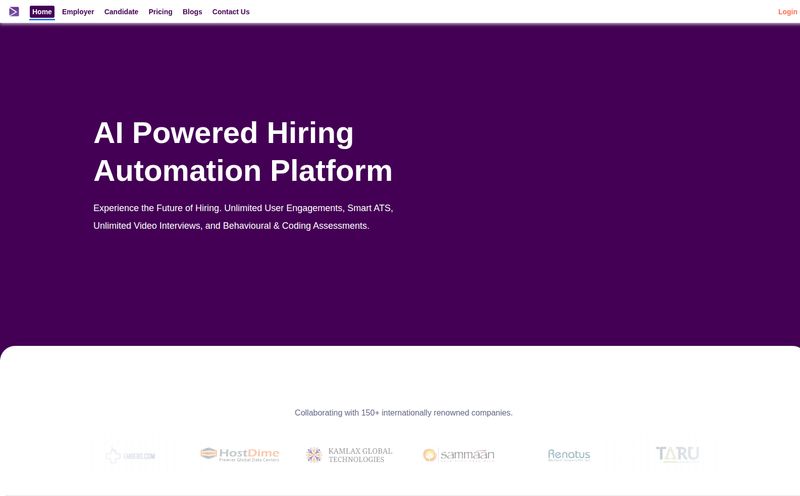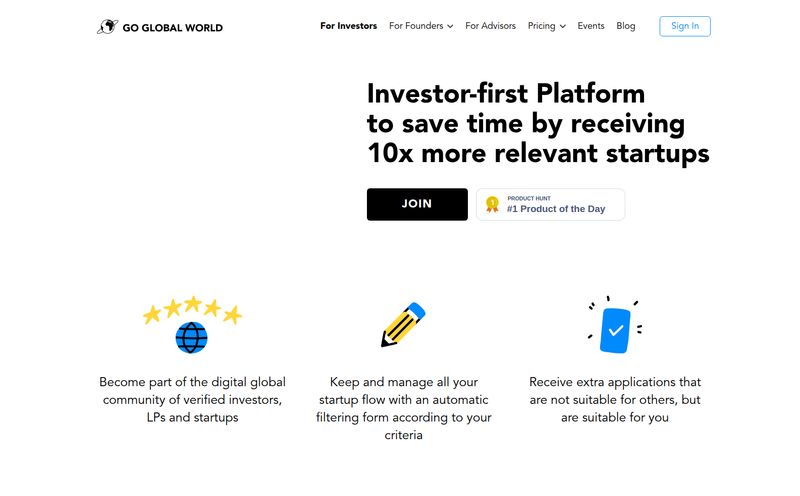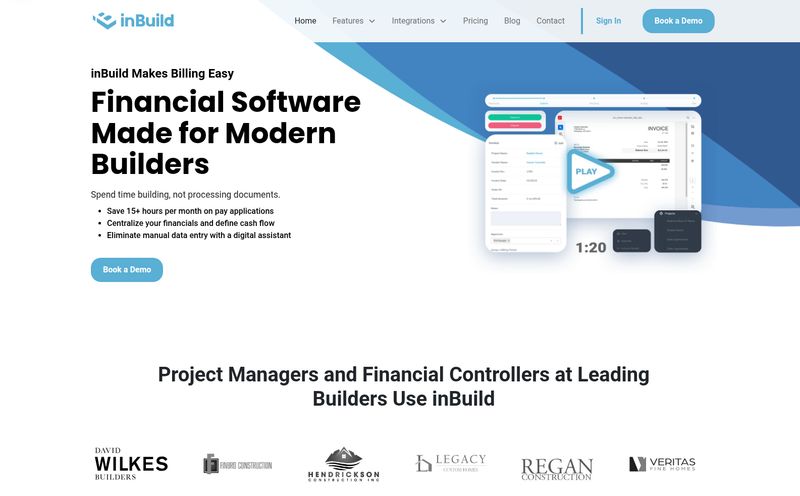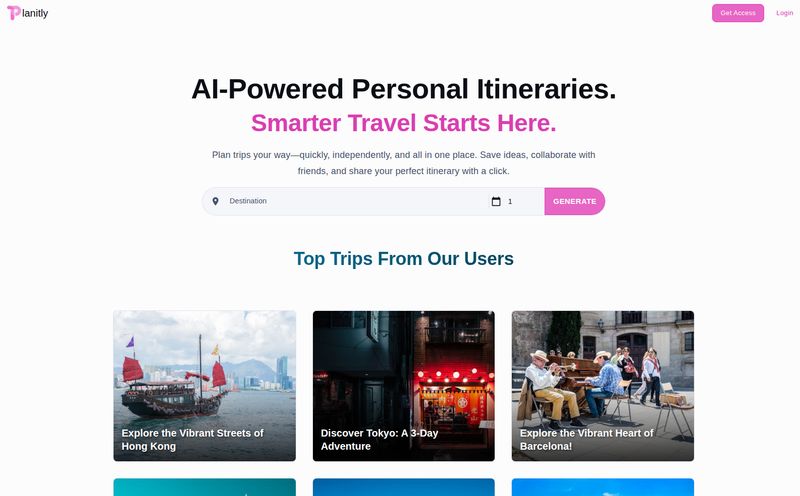My job, and probably yours too, involves drinking from a firehose of information. Every single day. It’s a constant, unrelenting stream of articles, LinkedIn thought-leader posts, podcasts, and that one book everyone says you have to read. My browser tab situation is often a silent cry for help. For years, I've cobbled together systems to manage it all—RSS feeds, Pocket, endless bookmarks, newsletters I swear I'll read one day.
It's exhausting. And most of the time, we're not even looking for more content. We're looking for insights. For the actual idea buried in a 45-minute podcast episode or a 3,000-word article. We want the signal, not the noise.
So when I stumbled upon a tool called Sofon, which calls itself a "knowledge discovery engine," my curiosity was piqued. It doesn't promise to give you more to read; it promises to give you the core ideas from the people you already admire. A bold claim. I had to see for myself if it was just another fancy aggregator or something genuinely different.
What Exactly Is Sofon Anyway?
Okay, so let's break it down. Sofon isn't another Feedly or Inoreader. It’s not designed to just funnel blog posts into a clean list. Instead, it operates on a more interesting premise: it tracks smart people and curates their best ideas. Think of it less like a newspaper delivery service and more like a personal research assistant who listens to all the podcasts, reads all the books, and sifts through all the articles from your favorite thinkers—people like Naval Ravikant, Tim Ferriss, or specific experts in your niche—and then hands you a briefing of their most important points.

Visit Sofon
These briefings come in the form of what they call an "idealetter." It's a personalized stream of insights delivered right to you. The goal is to skip the fluff and get straight to the actionable knowledge, saving you, and I quote, "hundreds of hours." As someone whose time is their most valuable asset, that’s a pretty compelling pitch.
The Real Problem Is Curation, Not Creation
We're living in an age of infinite content. That's not the bottleneck anymore. Anyone can start a blog or a podcast. The real challenge is curation. How do you find the truly valuable stuff without spending your entire life searching for it? This is a topic I've seen debated endlessly on forums like Hacker News and in marketing circles. We've optimized for creation, but we've neglected discovery and synthesis.
That's the problem Sofon is trying to solve. Instead of you having to listen to a dozen podcasts a week, it extracts the core concepts for you. It's a layer of intelligent filtering that I've been looking for. It’s the difference between being handed a library and being handed a curated reading list with summaries prepared by a trusted librarian. One is a chore; the other is a gift.
My Experience Taking Sofon for a Spin
I started with the free "Imperial" plan, because, well, I'm always going to try the free tier first. The setup was straightforward. You pick some people you admire from their list, and Sofon gets to work building your first idealetter. The magic here is in the aggregation. It's pulling from sources I’d never have time to check consistently—deep-cut podcast interviews, obscure blog posts, and mentions in books.
The Things I Genuinely Liked
The time-saving aspect is absolutely real. On my first day, it surfaced a brilliant idea about product-led growth from a podcast interview I had bookmarked but never gotten around to. Sofon didn't just link me to the podcast; it presented the core idea in a digestible format. That alone was an 'aha' moment. Following people instead of just publications or keywords feels like a fundamentally better way to learn. It aligns with how we naturally find mentors and gain knowledge—by listening to individuals we trust. The diversity of sources is another huge plus. Podcasts are notoriously hard to 'scan' for information, and Sofon cracking that nut is a major win in my book.
The Areas That Could Be Better
Now, it’s not all perfect. A few of the most exciting features, like the "AI-curated views" and "alerts," are listed as "Upcoming." I'm super excited about these, but it does feel a bit like paying for a promise. I'm optimistic, but it's something to be aware of. The free tier is also quite limited. You get a taste, but the restricted UI access to ideas means you'll quickly feel the pull to upgrade if you're serious about it. And thats probably the point, right? Lastly, the top-tier "Transforming" plan uses the classic "Let's talk" pricing model. As a small business owner, I always find this a bit opaque, though it's standard practice for enterprise-level tools.
A Look at Sofon's Pricing Tiers
The pricing structure seems designed to cater to everyone from the casual learner to a full-blown research team. It's pretty logical.
| Plan | Price | Best For |
|---|---|---|
| Imperial | $0 / month | Individual learners and enthusiasts who want to test the waters and see what an 'idealetter' is all about. |
| Self-authoring | $18.99 / month | The sweet spot. For professionals, content creators, and researchers who need deeper insights, full search, and more customization. |
| Transforming | Contact for pricing | Teams and organizations that require unlimited access, historical analysis, and collaborative features. |
For my money, the $18.99/mo 'Self-authoring' plan is the real deal. It unlocks the full search and gives you enough idealetters and customization to make it a core part of your workflow. The free plan is a great demo, but this is where the tool really starts to sing.
So, Who Is Sofon Really Built For?
After playing around with it for a while, I have a pretty clear picture of who gets the most out of Sofon.
- The Time-Starved Professional: If your job depends on staying ahead of trends but you don't have 10 extra hours a week for 'research,' this is for you.
- The Content Creator or Strategist: Need to connect dots and find fresh angles? Sofon is like a goldmine of expert takes and foundational ideas, perfect for sparking your next article, video, or campaign.
- The Lifelong Learner: If you are genuinely curious and want to learn from the best minds in various fields, this is a much more efficient way to do it than just randomly surfing the web.
Who isn't it for? Probably someone who genuinely loves the slow, serendipitous process of manual research and sees it as a hobby, not a task to be optimized. Or, if you're on a super tight budget, the free tier might feel a bit too restrictive for long-term use.
Frequently Asked Questions about Sofon
- 1. Is Sofon just another news aggregator like Feedly?
- Not at all. Aggregators collect articles. Sofon curates ideas from experts across multiple formats like articles, books, and even podcasts. It's about synthesis, not just collection.
- 2. Can I actually try Sofon for free?
- Yep! The 'Imperial' plan is their free-forever tier. It's a great way to get a feel for the platform and receive your first idealetter, though it has some limitations.
- 3. What is an "idealetter"?
- Think of it as a personalized intelligence briefing. It's a custom stream of the core ideas and insights from the specific people you choose to follow, delivered to you at your preferred interval.
- 4. What kind of sources does Sofon pull from?
- It's impressively broad, covering over 1,000 sources that include articles, books, and podcasts. This is a huge advantage, as it taps into rich media that's often difficult to quickly extract information from.
- 5. Is Sofon worth the price for a professional?
- In my opinion, yes—if you value your time. The $18.99/month for the 'Self-authoring' plan can easily be justified if it saves you even just a few hours of research work each month. The ROI is pretty clear.
- 6. Are the fancy AI features available right now?
- Some of the AI-curated views and alerts were listed as 'Upcoming' when I reviewed it. It’s best to check Sofon's website directly for the most current feature status, as they seem to be developing quickly.
My Final Verdict on Sofon
I'm optimistic and genuinely impressed. Sofon is tackling a problem that every single knowledge worker faces every day. It's not just another tool; it’s a new approach. It's a bet that in the future, the most valuable skill won't be finding information, but filtering it for wisdom.
While some of its potential is still on the horizon with 'upcoming' features, what's already here is powerful. It saves time, delivers high-quality insights, and fundamentally changes how you can interact with the ideas of the experts you respect. For me, it's earned a spot in my toolkit. It's a quiet, intelligent assistant working in the background to make me smarter. And in this noisy world, I can't ask for much more than that.



